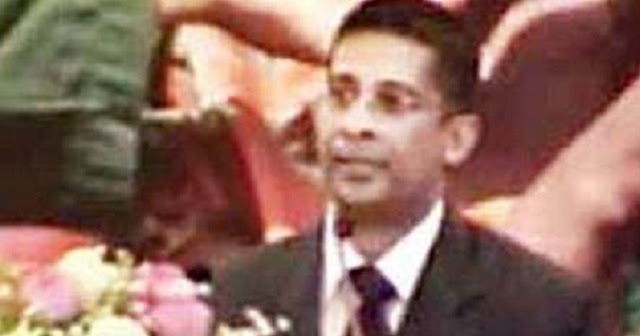The head of Sri Lanka’s State Intelligence Service (SIS) was sacked on Saturday, and the premier spy agency was brought back under the control of the police after nearly five years.
Retired Major General Suresh Sallay was dismissed after he refused to resign following the takeover by the new government of President Anura Kumara Dissanayake, an official source involved in the shake-up told Economynext.
Police Deputy Inspector General Dhammika Priyantha, who had earlier served at the CID/FCID, was appointed as the director of the SIS, bringing the agency back under the police’s jurisdiction.
The SIS had shifted to military control under Gotabaya Rajapaksa’s presidency, but his successor, Ranil Wickremesinghe, not only retained the controversial Major General Sallay but also re-employed him after his retirement.
Gotabaya Rajapaksa had blamed Sallay’s SIS for intelligence failures that led to his downfall in July 2022, following months of street protests against acute shortages of food, fuel, and medicines amid the country’s worst economic crisis.
Sallay was present, along with other service chiefs, when Rajapaksa was forced to flee the President’s House in Colombo as mobs of protesters stormed it on July 9, 2022.
Sallay had failed to alert Rajapaksa about a group of women storming Rajapaksa’s private home on March 31, 2022, an event that marked a turning point leading to his eventual downfall. Rajapaksa disclosed the intelligence failures of Sallay in his book,
The Catholic Church had repeatedly urged successive governments to take action against Sallay, who was accused of involvement in the Easter Sunday bombings of April 2019.
A British newspaper reported in September 2023 that Sallay had orchestrated the Easter Sunday bomb plot while working for the Directorate of Military Intelligence, with the aim of creating instability to pave the way for the Rajapaksas to return to power.
The Times newspaper said that the deadly bombings, which killed at least 280 people, including 45 foreign nationals, were orchestrated by Sri Lanka’s military intelligence.
Sallay was promoted to head of the State Intelligence Service shortly after Gotabaya Rajapaksa came to power in November 2019. He was recently given a one-year service extension by President Ranil Wickremesinghe, and when it ended, he was re-employed as a retired officer.
Islamic extremists set off suicide bombings at two Catholic churches, a Christian church, and three hotels. The attacks were later claimed by the Islamic State group.
Sallay has denied the allegations and has counter-sued Catholic priests who accused him. He has also filed a civil defamation case against Yasmin Sooka, a former South African chief justice, who accused Sallay of masterminding the bombings.
The Criminal Investigation Division (CID), then headed by Ravi Seneviratne, concluded that the Directorate of Military Intelligence (DMI) where Sallay employed had attempted to mislead those investigating the April 2019 bombings.
Seneviratne’s team of detectives, led by Shani Abeysekera, also found a direct link between DMI operatives and several suicide bombers involved in the most audacious terror attack in the country’s history.
With Seneviratne now heading the Public Security Ministry as its secretary and in charge of the police department, investigations into the Easter Sunday attacks have resumed


